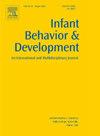前2年产妇产后抑郁与反应性喂养:综述
IF 1.9
3区 心理学
Q3 PSYCHOLOGY, DEVELOPMENTAL
引用次数: 0
摘要
产妇产后抑郁会影响照顾行为,包括练习反应性喂养的能力。反应性喂养促进儿童对饥饿和饱腹感的自主,并可导致适当的生长和发育,而非反应性喂养做法,如施加压力或控制喂养,往往无视儿童的暗示,灌输不利行为,增加过度喂养和改变生长的风险。反应性喂养在头两年尤其重要,这是婴儿学习、生长和发育的关键时期。本文综述了目前有关0-24 月龄儿童产后抑郁与喂养行为关系的文献。来自美国、澳大利亚、中国、印度、英国和加勒比地区的12项研究探讨了这种关系。产后抑郁症的患病率差异很大,从10% %到60% %不等。一般来说,产妇产后抑郁症状与无反应性喂养有关,特别是与高压或强制喂养方式有关,涉及高度控制,但也与与公共卫生建议相反的行为有关,如在瓶子里添加谷物。大多数研究采用爱丁堡产后抑郁量表(EPDS)和流行病学研究中心抑郁量表(CES-D)来筛查产妇产后抑郁,而用于评估喂养方式的工具缺乏一致性,这突出表明在未来的研究中需要更一致的定义和标准化工具。本文章由计算机程序翻译,如有差异,请以英文原文为准。
Maternal postpartum depression and responsive feeding in the first 2 years: A review
Maternal postpartum depression can influence caregiving behaviors, including the ability to practice responsive feeding. Responsive feeding promotes children’s autonomy over their hunger and satiety and can lead to proper growth and development, whereas non-responsive feeding practices such as pressuring or controlling feeding tend to override children’s cues, instilling unfavourable behaviors and increasing the risk of overfeeding and altered growth. Responsive feeding may be especially important during the first two years, a crucial period of learning, growth, and development. This review summarizes current literature exploring the association between maternal postpartum depression and feeding behaviors among children aged 0–24 months. Twelve studies from the USA, Australia, China, India, the UK, and the Caribbean explored this relationship. The prevalence of postpartum depression varied widely, from 10 % to 60 % of participants. In general, maternal postpartum depression symptoms were associated with non-responsive feeding, particularly with pressuring or forceful feeding styles involving high control, but also with actions in contrast with public health recommendations such as adding cereal to bottles. Most studies employed the Edinburgh Postnatal Depression Scale (EPDS) and the Center for Epidemiological Studies Depression Scale (CES-D) to screen for maternal postpartum depression, while there was a lack of consistency in tools used to assess feeding styles, highlighting the need for a more consistent definition and standardized tool in future research.
求助全文
通过发布文献求助,成功后即可免费获取论文全文。
去求助
来源期刊

Infant Behavior & Development
PSYCHOLOGY, DEVELOPMENTAL-
CiteScore
4.10
自引率
4.80%
发文量
94
期刊介绍:
Infant Behavior & Development publishes empirical (fundamental and clinical), theoretical, methodological and review papers. Brief reports dealing with behavioral development during infancy (up to 3 years) will also be considered. Papers of an inter- and multidisciplinary nature, for example neuroscience, non-linear dynamics and modelling approaches, are particularly encouraged. Areas covered by the journal include cognitive development, emotional development, perception, perception-action coupling, motor development and socialisation.
 求助内容:
求助内容: 应助结果提醒方式:
应助结果提醒方式:


